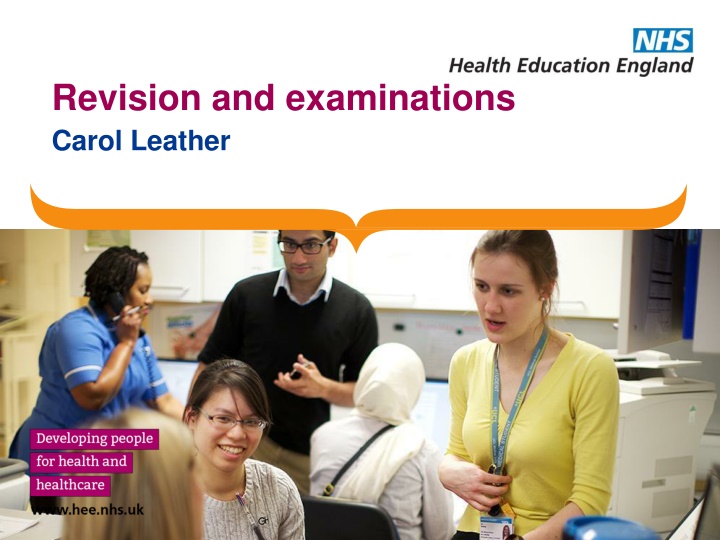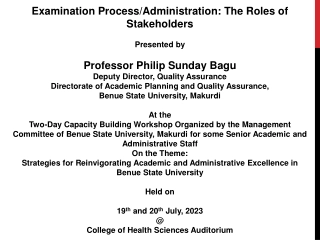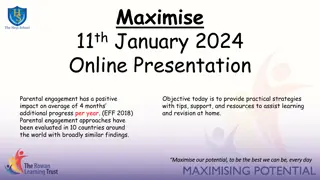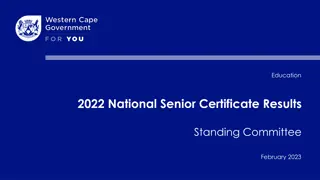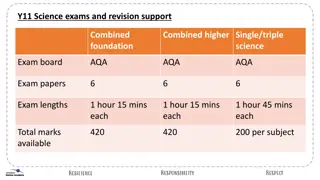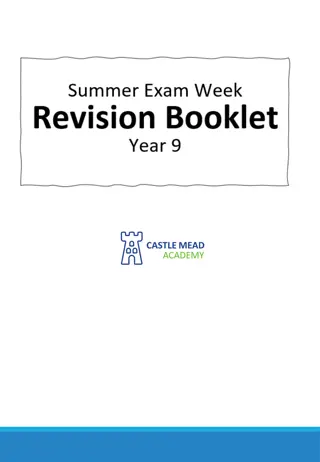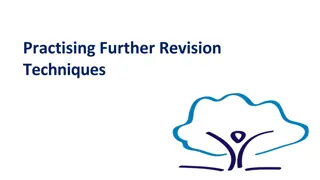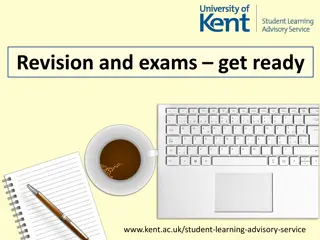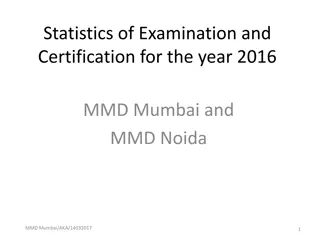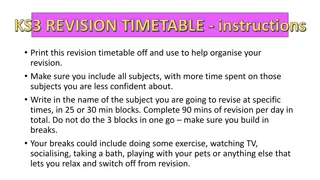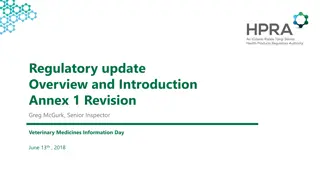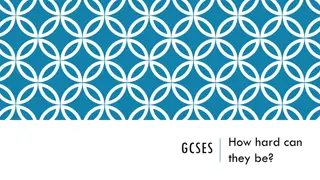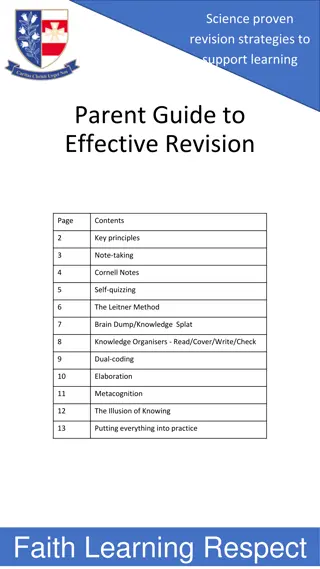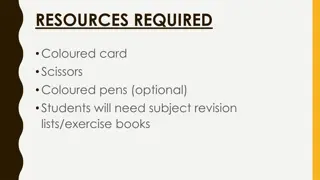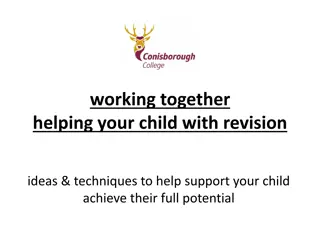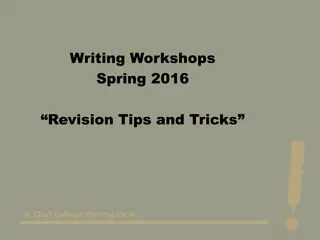Effective Strategies for Successful Revision and Examinations
Overcoming the challenges of revision and examinations is crucial for academic success. Learning and information processing, planning, and implementing effective revision strategies are key elements discussed in the content. The importance of storage, different learning channels, and memory aids are highlighted to enhance knowledge acquisition and retention. By focusing on multi-sensory learning techniques and goal-oriented studying, individuals can boost their confidence in various settings, including clinical environments, and improve exam performance.
Download Presentation

Please find below an Image/Link to download the presentation.
The content on the website is provided AS IS for your information and personal use only. It may not be sold, licensed, or shared on other websites without obtaining consent from the author.If you encounter any issues during the download, it is possible that the publisher has removed the file from their server.
You are allowed to download the files provided on this website for personal or commercial use, subject to the condition that they are used lawfully. All files are the property of their respective owners.
The content on the website is provided AS IS for your information and personal use only. It may not be sold, licensed, or shared on other websites without obtaining consent from the author.
E N D
Presentation Transcript
Revision and examinations Carol Leather
Overview The challenges of revision Learning and information processing and revision The importance of planning Examinations: the challenges The process and performance Case studies
What is learning and information processing? Gaining knowledge, using it It is determined by way we perceive, process, store and retrieve information from experience Learning occurs through guidance and errors It occurs through experience and practice What is revision ? What are the barriers ?
The acquisition of knowledge Working memory Mastery and understanding By not knowing and forgetting What are the learning / processing channels ? What are the most effective?
Storage is important ALibrary has two functions: to store information to help you gain access to that information-- good storage systems in the brain help recall Organising and making information meaningful aids memory retention and retrieval
Revision strategies Active, passive or rote Is it wrong to just do questions ? Beware the recognition trap! (recognising something on a page passive- it is not necessarily knowing it, being able to recall it) Different information requires different learning strategies Source Edgar Dale (1969)
Effective learning Multi sensory learning is the best !! 4 M s Manageable - plan it, break it into bits Meaningful - look for the structure, activate prior knowledge Multi sensory - incorporate the senses Memory aids task specific techniques The goals T o know the material -- to recall it -- self test T o be able to use it in examinations T o apply it in other scenarios Revision outcome: more confident in a clinical setting and pass exams !
The importance of planning Why don t people plan ? Why should people plan ? Fear Planning, preparation and practice improve performance Never stick to it keeps changing Ensures much of the knowledge is refreshed Don t know how to do it or where to start Improves recall Wastes time Increases confidence
How to plan Think strategically Be goal orientated Evaluate your knowledge base self test prioritise Look / fit to time frame- e.g. Outlook Analyse what you have to learn - difficulty/ interest / type of information Pre set daily /weekly goals short achievable goals -check and reflect Task specific method - best way Make the best of your energy and time --- be flexible Reflect Be organised, creative and enjoy it ! Make it manageable, multi sensory, meaningful, memory aids
The examination process The rationale: The what, the why, the how The impact on the individual Blooms Cognitive domain
How do you do the written exams (e.g. MCQs) Cover up the potential answers Read the question sentence What do YOU think the answer is? Think about the context Where is the answer located in the text what are the variables- age gender etc ? Check your answer against what is offered Beware changing your answer in the examination
Practical exams (e.g. CSA, PACES, OSCEs) Planning, preparation, practice Distinguish between: Those with an answer Those which require judgement T ake your time to think Understand your own stress reaction Breathing is good for you! The challenge is part of the process test of your confidence in your skills & knowledge
Be strategic : Preparation are you getting exam ready energy, approach, confident, philosophy Plan an exam strategy: Chunking - time allocation - gold silver bronze method any others? Practice MCQ s - mock papers, timed questions, banks CSA, PACES, Viva s - with others
On the big day You should feel: exam ready well prepared philosophical excited rested confident
